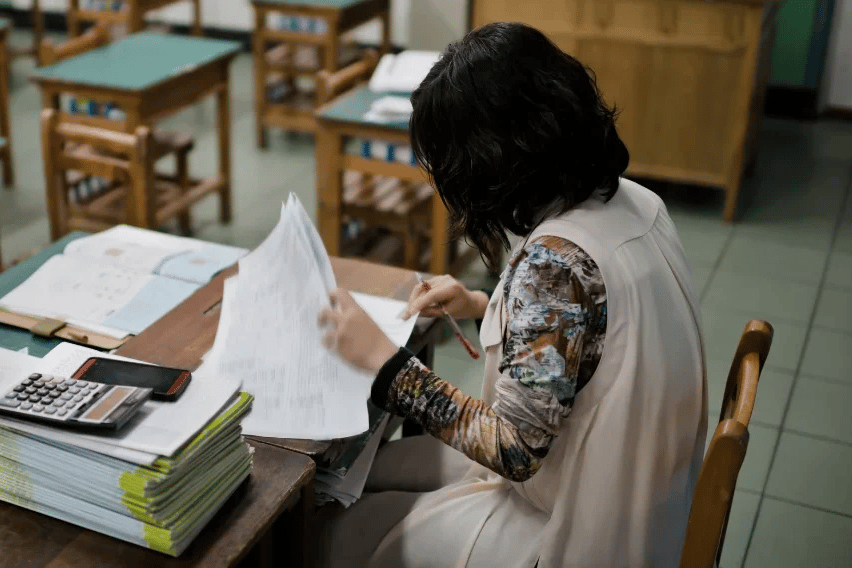
If you want to support independent women's media, become a Mamamia subscriber. Get an all-access pass to everything we make, including exclusive podcasts, articles, videos and our exercise app, MOVE.
Gold Coast high school teacher Sally* has a tally on the noticeboard above her desk. It reads: 'Days since I've cried about work'.
"It started as a joke with my colleagues, but in truth I've averaged at least one big cry per week this term alone," she said.
"Don't get me wrong — I love face-to-face relational teaching with my students, but it's the never-ending to-do list that just keeps having more urgent things piled on top with no sign of finishing that gets me exhausted."
Watch: Teachers' Rally in Albury. Post continues below.
Sally is one of a growing number of teachers facing significant burnout due to the convergence of staff shortages, increasing behavioural management demands in classrooms and an 'always on' expectation from schools.
In a recent post in a Facebook group, another teacher begged for suggestions on other career options she could pursue.
She described feeling "broken" and "dead inside", having been a high school teacher for over a decade. She went on to explain that every Friday she is left in tears from sensory overload and the feeling of burnout.




























































































